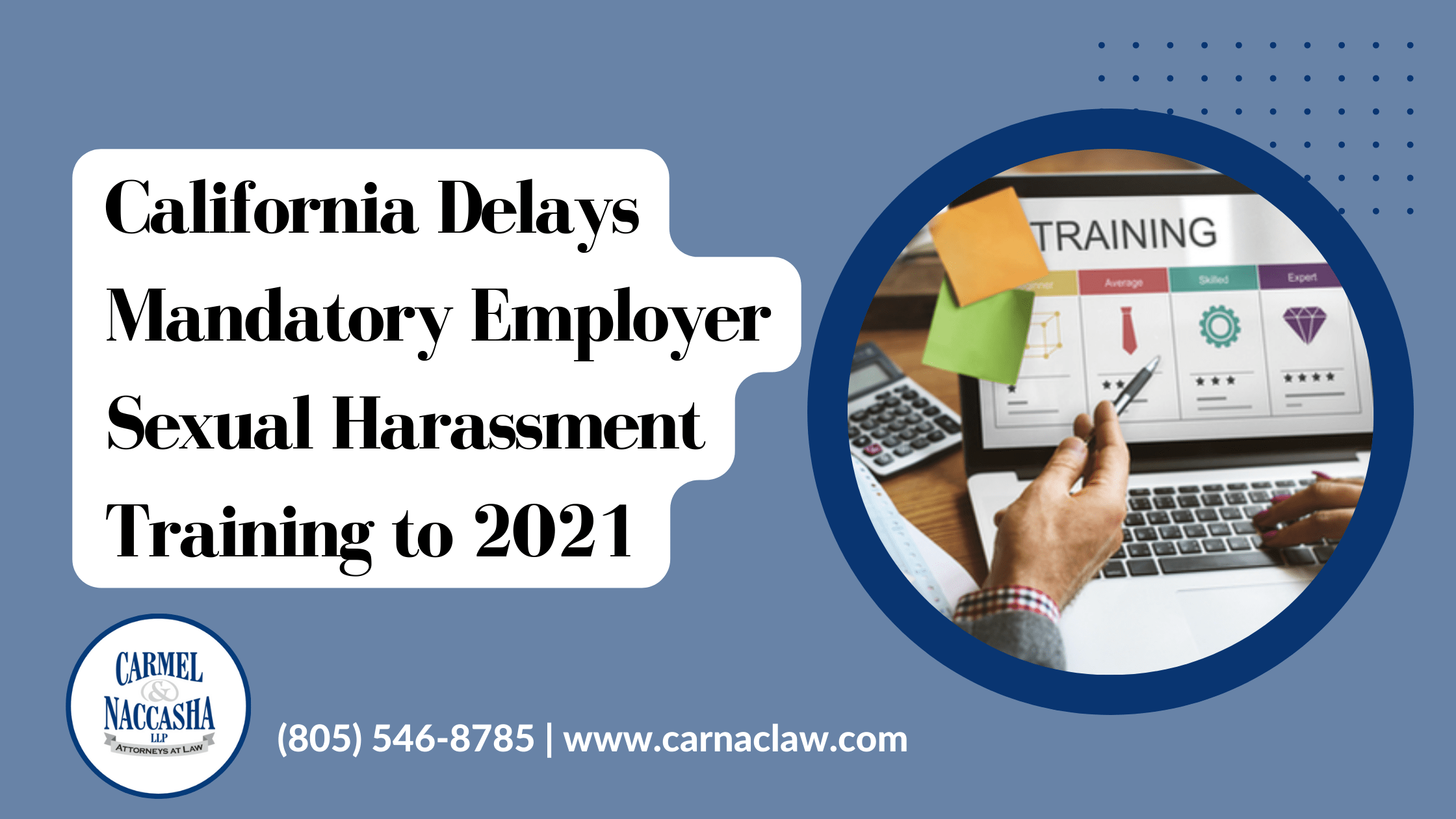California SB 1343, signed on September 30, 2018 required employers with 5 or more employees, including temporary or seasonal employees, to provide at least 2 hours of sexual harassment training to all supervisors and at least one hour of sexual harassment training to all non-supervisory employees beginning on January 1, 2020. While SB 1343 allowed employers who complied with the training requirements in 2019 to forego the training in the year 2020, there was some confusion amongst employers who have already provided harassment training to their employees. The concern was that employers, at their own expense and without any additional benefit to the employee, would have to have their employees participate in the training twice in a 2 year period.
Accordingly, on August 30, 2019, SB 778 was signed by Governor Newsom delaying the training requirements for SB 1343. The new bill attempts to clarify the training concerns and provides an additional buffer for employers to comply with the requirements of SB 1343. Some key elements of the update include:
- An employer with 5 or more employee must provide sexual harassment training and education by January 1, 2021, NOT January 1, 2020. Training must continue once every two years thereafter;
- New nonsupervisory employees must go through one hour of sexual harassment training and education within 6 months of hire;
- New supervisory employees must go through two hours of sexual harassment training within 6 months of taking on the new supervisory role; and
- Should an employer provide and document this training and education in 2019, the employer will not be required to provide any further training until two years thereafter.
Generally, both SB 1343 and SB 778 set out specific requirements regarding the sexual harassment training that employers must provide. While employers should diligently review and incorporate all the requirements in their training programs, below are some key items for employers to be aware of when developing their internal policies and procedures:
- Training can be completed individually or as part of a group, and the training does not have to be one long continuous training as it can be split up into shorter segments, so long as the total hourly requirements are met;
- Training and education must include practical guidance relating to federal and state law and statutes concerning the prevention, prohibition and correction of sexual harassment issues that may arise in the workplace. This guidance must also include remedies available to victims of sexual harassment in employment;
- The training and education must include practical examples for supervisors in how to identify and prevent harassment, discrimination, and retaliation. Trainers or educators with knowledge and expertise in the prevention or harassment, discrimination and retaliation must present this training and education;
- The Department of Fair Employment and Housing must provide a method for employees who have completed training to access, print and save a certificate of completion evidencing that the required training has been completed;
- Training and education must be comprehensive and not limited to merely sexual harassment alone. The training and education must also include information relating to harassment based on gender, gender identity, gender expression and sexual orientation; and
- Employers should not provide for training that is longer, more frequent, or more elaborate that what is identified as the minimum threshold for the required training.
A supervisor is typically defined as anyone possessing the authority to exercise independent judgement to:
- Hire, transfer, suspend, lay off, recall, promote, discharge, assign, reward, discipline or address grievances of other employees;
- Direct other employees’ work, adjust their schedules and/or work assignments; or
- Effectively recommend any of these actions.
Employers should take care to continue to incorporate sexual harassment training and education into the workplace as SB 778 merely delays the requirements for training. Given that the legislature and governor have provided this extension, another is unlikely to be provided. The attorneys at Carmel & Naccasha can provide this training for both supervisory and nonsupervisory staff, and we will continue to track and report on current developments in this area.
Contact Legal Professional
The information provided herein does not, and is not intended to, constitute legal advice; instead all information, content, and materials are for general informational purposes only.
If you have any questions, please contact Carmel & Naccasha, and for more details, read our full disclaimer.



